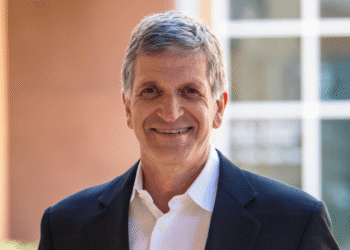In his compelling lecture, Professor Erik Swyngedouw offered a radical critique of contemporary climate discourse, describing it as trapped in a “climate deadlock” where knowledge and activism coexist with deepening ecological crisis. He argued that mainstream and radical climate narratives mirror the structure of populism, constructing simplistic binaries while displacing attention from capitalism’s core role in driving environmental destruction. Professor Swyngedouw challenged participants to recognize that the environmental apocalypse is not an imminent future but an unevenly distributed present reality for much of the world. His provocative call to dismantle the comforting fantasy of a unified humanity urged a re-politicization of the climate crisis, demanding systemic transformation and solidarity grounded in confronting global inequalities.
Reported by ECPS Staff
The sixth lecture of the ECPS Academy Summer School 2025, titled “The Climate Deadlock and The Unbearable Lightness of Climate Populism,” was delivered as part of the broader program, “Populism and Climate Change: Understanding What Is at Stake and Crafting Policy Suggestions for Stakeholders,” held online from July 7 to 11, 2025.
The lecture was presented by Professor Erik Swyngedouw, a globally respected scholar in the fields of political ecology and critical social theory. He is Professor of Geography at the University of Manchester and Senior Research Associate at the University of Johannesburg’s Centre for Social Change. His work interrogates the political dimensions of environmental crises, urbanization, and social power. Among his major publications are Promises of the Political: Insurgent Cities in a Post-Democratic Environment (MIT Press), Liquid Power: Contested Hydro-Modernities in 20th Century Spain (MIT Press), and Social Power and the Urbanisation of Nature (Oxford University Press). His forthcoming book Enjoying Climate Change (Verso), co-authored with Lucas Pohl, extends his critical inquiry into the paradoxes of contemporary climate discourse.
Moderating the session was Jonathan White, Professor of Politics at the London School of Economics. Professor White is a prominent scholar of democracy, political temporality, and European politics. His books include In the Long Run: The Future as a Political Idea (2024), Politics of Last Resort: Governing by Emergency in the European Union(2019), and The Meaning of Partisanship (2016, with Lea Ypi). As moderator, Professor White introduced the speaker, contextualized the discussion within contemporary debates on populism and climate change, and facilitated a lively and thoughtful discussion by drawing connections between climate discourse, democratic politics, and visions of the future.
In his lecture, Professor Swyngedouw advanced a provocative and unsettling critique of contemporary climate discourse. He argued that despite widespread scientific consensus, institutional action, and activist mobilization, the condition of the planet continues to deteriorate—a paradox he termed the "climate deadlock." Drawing on a psychoanalytically informed, Marxist perspective, Professor Swyngedouw contended that mainstream climate discourse functions in ways structurally parallel to populism, constructing binary narratives of virtuous “people” versus villainous “elites” or “external threats” (such as CO₂), while masking the real systemic drivers of ecological catastrophe: capitalism’s relentless imperative for accumulation and growth.
Professor Swyngedouw’s central claim—that both liberal and radical climate discourses reproduce depoliticization by focusing obsessively on carbon emissions as a fetish object—challenged participants to rethink familiar narratives. He argued that the obsessive focus on CO₂ reduction displaces attention from the deep class antagonisms and material inequalities at the root of the climate crisis, allowing societies to “act as if” they are responding to climate change while leaving intact the socio-economic structures that cause environmental destruction. This displacement, he explained, generates what he termed the “unbearable lightness of climate populism”—an empty consensus that obscures the political transformations truly required.
This lecture, rich in theoretical rigor and critical insight, provided a powerful contribution to the Summer School’s objective of fostering critical debate about populism and climate change. It invited participants to reflect on how even well-intentioned environmental discourses can perpetuate depoliticization and obstruct radical action, urging a re-politicization that directly confronts the systemic drivers of ecological crisis.


